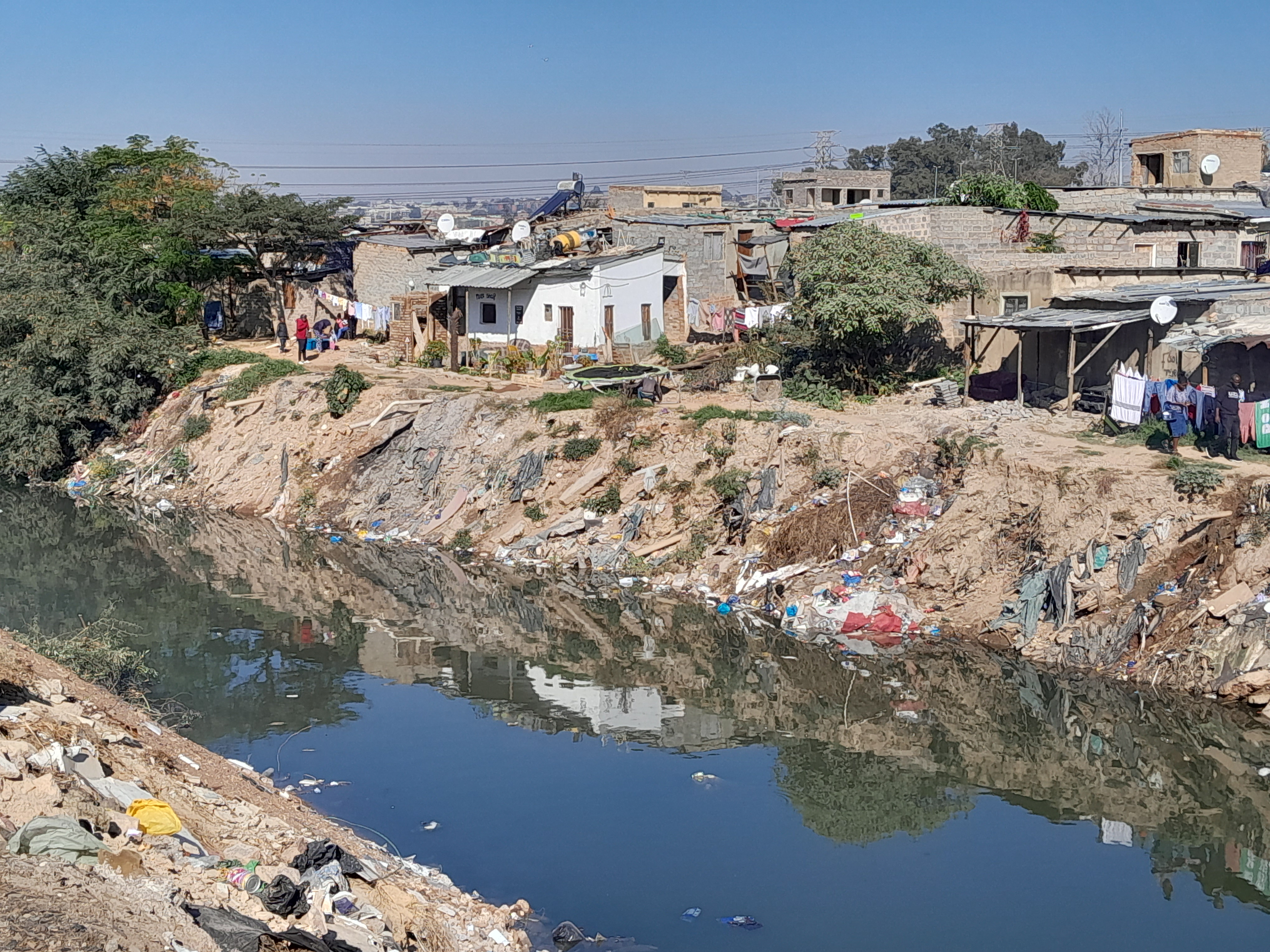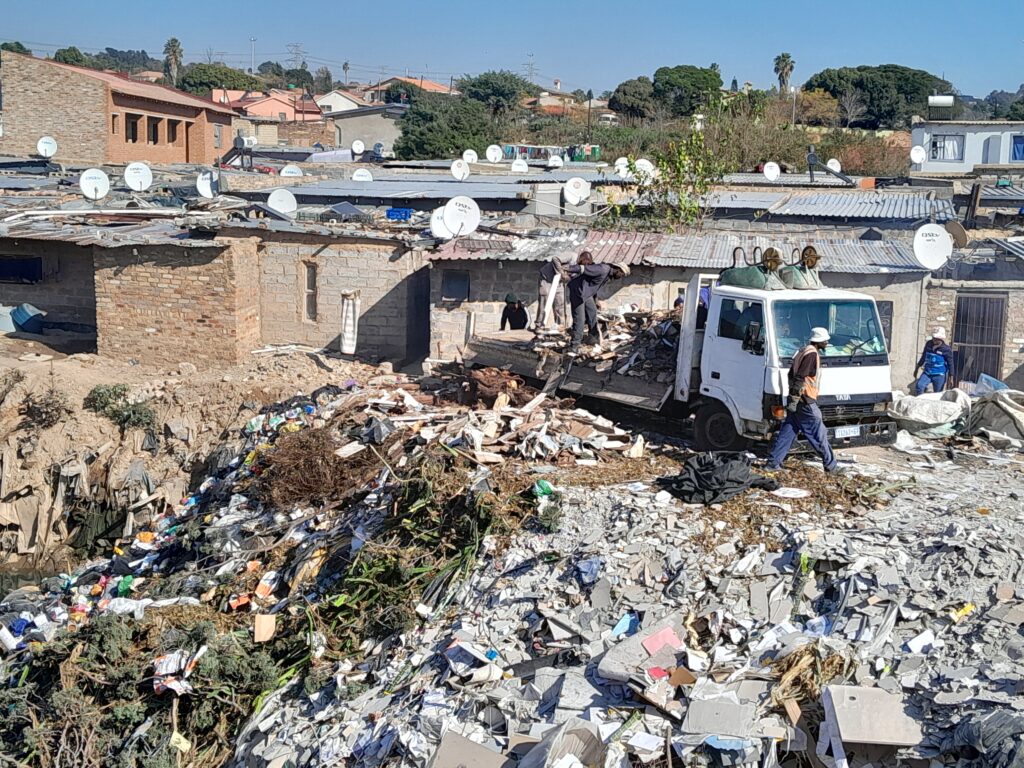A story about waste and what WE have to do about it.
Yesterday evening I was watching/listening to the Johannesburg Philharmonic Orchestra, and, as always, I felt privileged and massively appreciative of the moment, but for once, the music was secondary because my focus was on the orchestra. By that, I mean the cooperation of up to 60 musicians, each contributing a specific set of notes at specific times at varying lengths, all led by a single conductor (though I’m never really sure anyone looks at him/her) to produce the harmonious tapestry of sound that we call music. And then I went off into some sort of la la land, imagining how wonderful life would be if we did the same in our daily lives and communities.

But there is a flip side to this orchestra story, and the outcome is anything but harmonious. Last week Paul and I, with Mark McClure from the Water Warriors, visited Alexandra, a township in the City of Johannesburg’s Metropolitan Municipality, where cumulative dumping of rubbish has narrowed the Jukskei river from roughly 50m to less than 10m, with dwellings now constructed on the consolidated waste. The rubbish is everywhere in every imaginable form, and as we stood watching in horrified silence, trucks arrived in a steady stream to offload more.
“Why isn’t anyone stopping them?” I finally asked.
“Dumping waste is big business for some,” Mark told me. “And small jobs for the people who need to feed their families.”
“But where are the police?” I asked Janky Matlala, an environmental protection agent and also a local resident.
“They can’t risk retaliation,” he replied, gesturing to the vast conurbation. “And a lot of them are paid off to keep quiet, the councillors too.”

Clearly, we were standing in front of a disaster waiting to happen, a health crisis, flooding, collapsing buildings, a corpse river, but as Janky explained it, any counteraction had to come from the community itself because if the community refused to cooperate with the waste dumpers, they’d have to take their business somewhere else.
“But that’s only half a solution,” I argued.
He nodded and then pointed at me. “The other half has to come from people like you.”
“Me?”
He tipped his head towards the suburb of Sandton behind us. “Yes, you and people like you, who build and renovate and add extensions to your already huge houses, and the businesses and shopping malls that sell you your stuff, “ he paused to point at another truck offloading. “Where do you think that building waste comes from? And the packaging inside those black bags. Without your waste, they’d have nothing to bring here,” Janky concluded unnecessarily.
As we drove away toward our sanitized suburb, I heard the roar of off-key notes. Yes, like an orchestra, the process we had witnessed comprises numerous players cooperating in what could be an admirable harmony, except that the composer and conductor are blind and voracious. I thought about the improvements we’d made to our house and how I hadn’t asked the builders where the waste would be disposed of. I remembered the list I’d made that morning and wondered how much of it I really needed. When I asked Paul if we could “Just go home and not bother with the shopping,” he nodded and said he was about to suggest the same.

You helped me a lot with this post. I love the subject and I hope you continue to write excellent articles like this.
Thanks
Thank you
Thanks so much! Sorry I’ve taken so long to reply